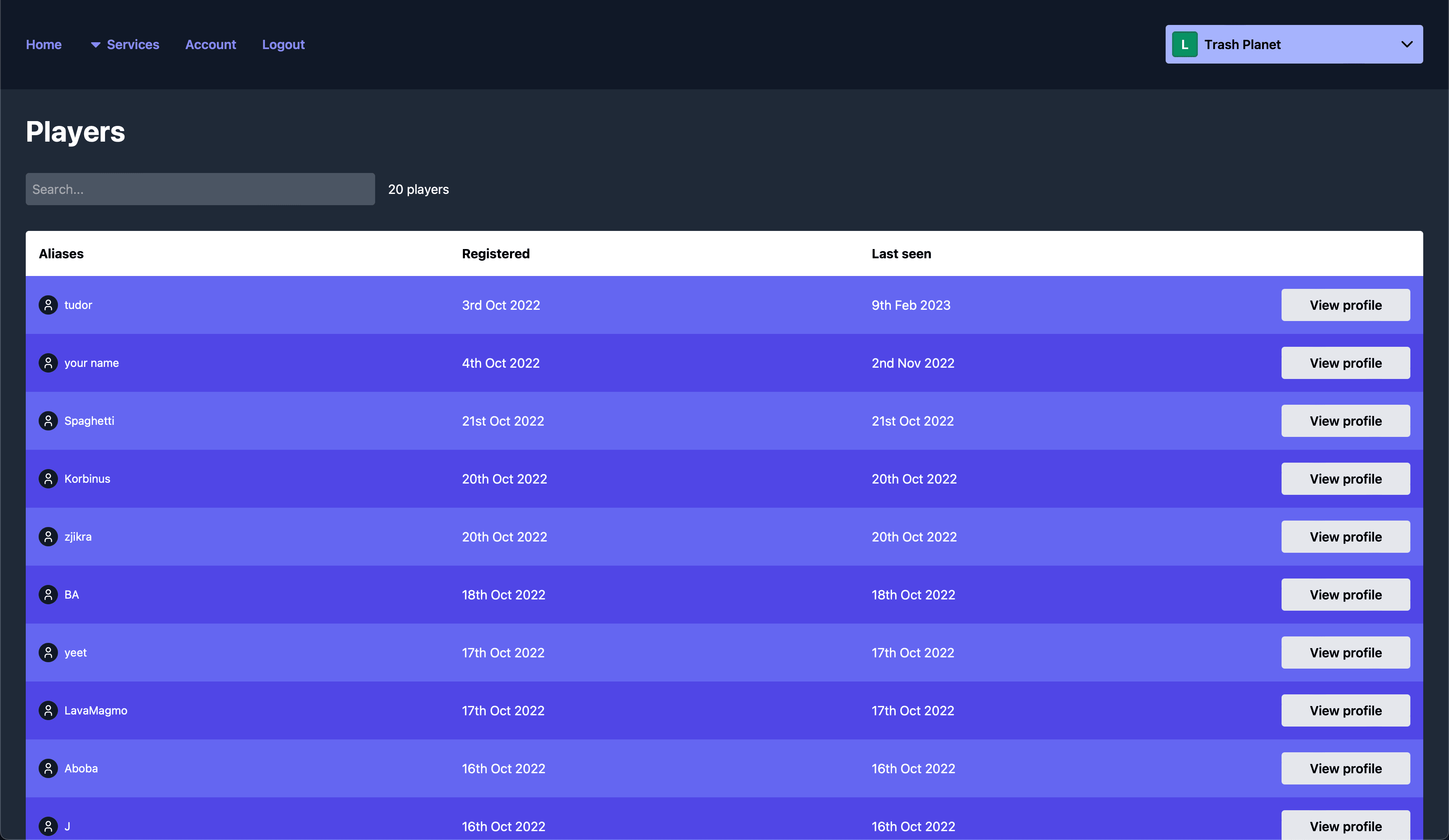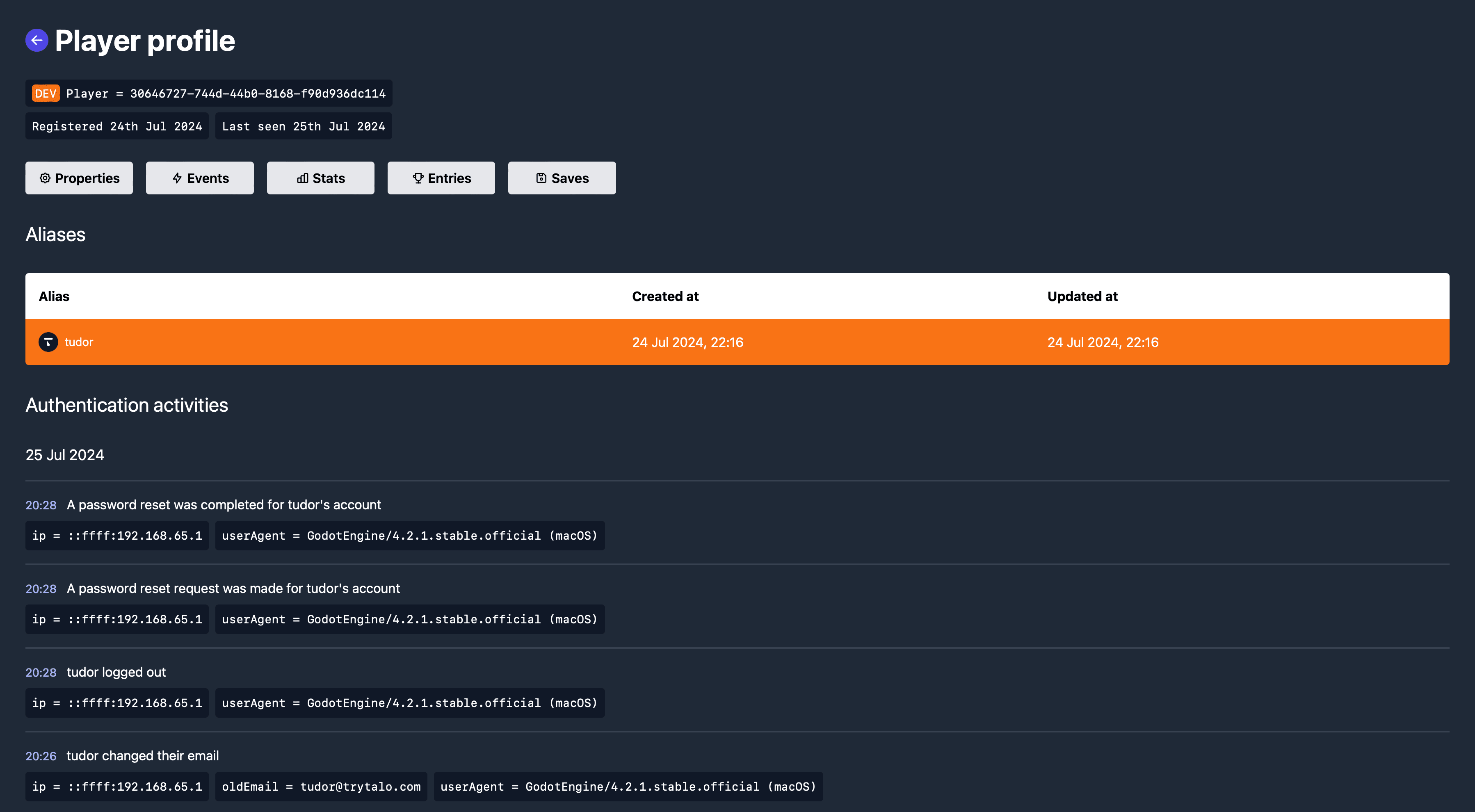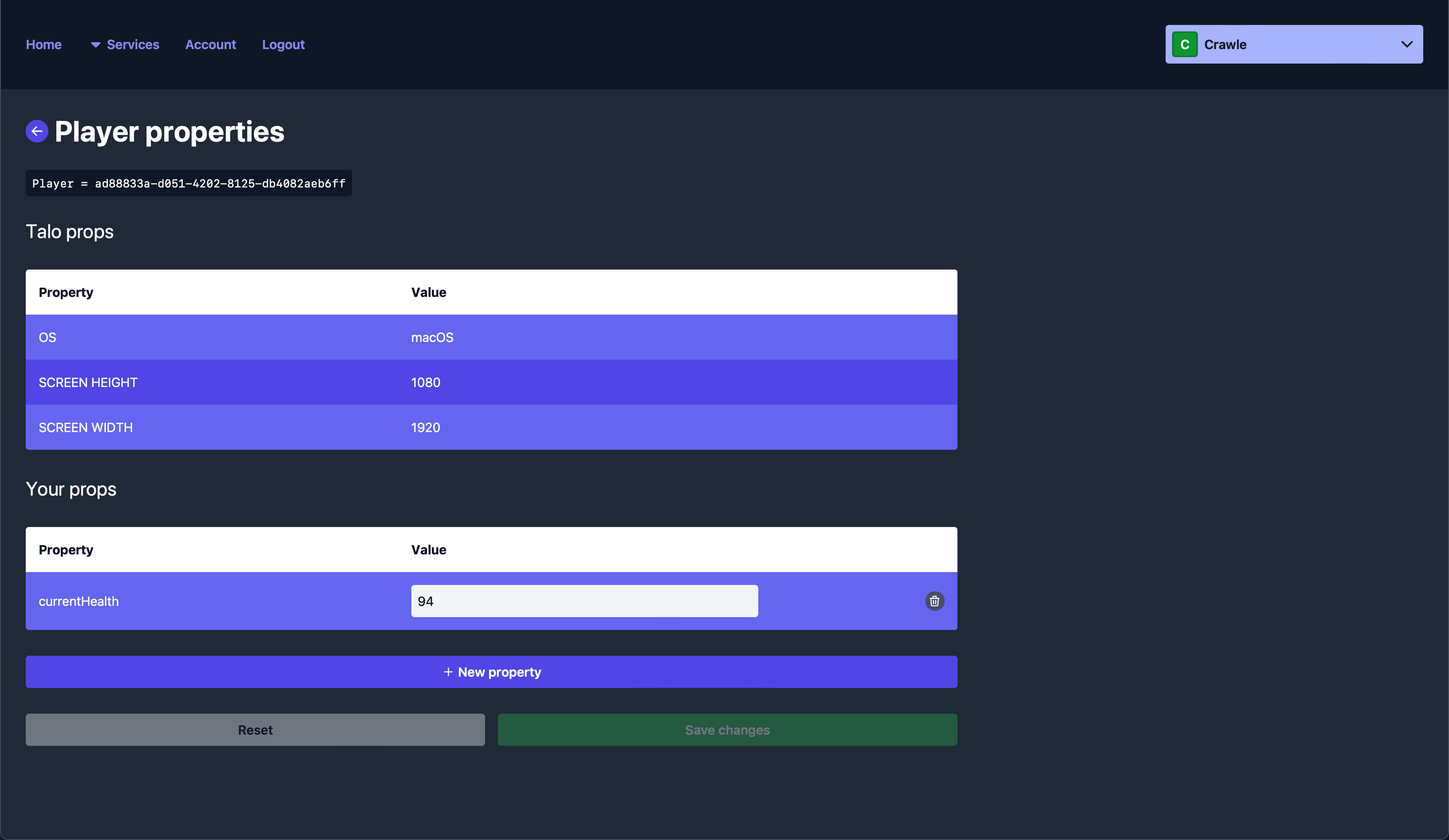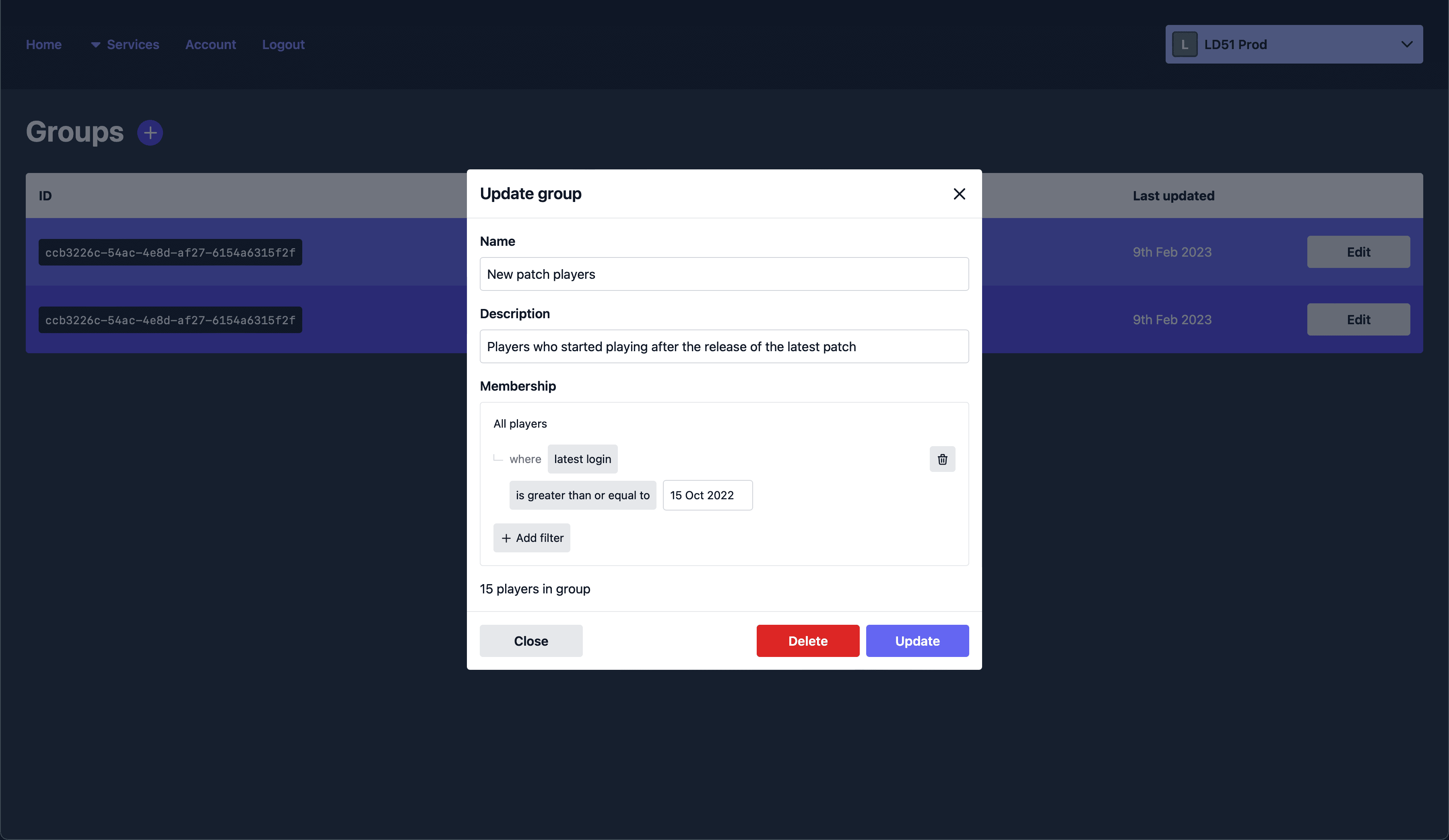Player management
TL;DR
Talo has an all-in-one player management system that lets you manage authentication, persistence and segments. You can sync Talo players with Steamworks.
Multiple player identities using aliases
Sometimes you want to give players the option to login with different services like Steam or Epic. Talo lets your players have multiple aliases and all of them are tied back to one central player.
This means that regardless of what service they use to sign in, all of their progress, saves and leaderboard entries will be available to them. Aliases also bring the additional benefit of being able to segment players and leaderboards by platform (e.g. Steam leaderboards vs. Epic leaderboards).
From the Talo dashboard, you can view any player's profile and inspect all of their aliases.
Talo even provides identity merging for when you've discovered two players that are actually only one - for example, if a player wants to link their Username to their Steam account.

Authentication
Talo provides a powerful and secure authentication system out of the box. You can use Talo to authenticate players using their email, username, or any other identifier you choose.
Using Talo you can provide an end-to-end account system for your players without needing to setup your own database. Talo takes care of registration, logins, verification and account administration.
For added security, you can view an audit log of all authentication actions taken by players directly in the Talo dashboard. This includes logins, registrations, email/password changes and verifications.

Learn more in the blog post:
Learn more in the blog post:
Persistence with props
Players can have any number of arbitrary properties that will persist between game sessions and all of their identities. You can use these, for example, to store a player's current health or level.
You can add, remove or update properties directly from the Talo dashboard. For example, you could tag all players that you want to be part of a closed beta test with a "hasBetaAvailable" property. When the beta is over, you can then remove this property. This behaviour pairs well with player groups to automatically unlock content without needing a new update.

Debugging with meta props
Events send through metadata about the player (Godot plugin docs here) such as their operating system and version of the game they're running. This allows you to easily debug common problems based on players' configurations.
Meta props are also used to clearly identify players that were created as part of internal builds, i.e. test players owned by developers. See the docs to learn more about how Talo separates development data in the Unity package and in the Godot plugin. These players can be hidden from the dashboard and omitted from data exports easily using the "dev data toggle" on the dashboard.
Create distinct segments
Using groups, you can divide your player-base into clear segments. For example, you could have a group of beta testers or a group for all the players who have completed the game.
Groups can have incredibly complex filters. You can combine requirements with "AND" and "OR" conditions and filter by values such as when the player last logged in. You can even filter by player props, leaderboard scores and stat values.
Once you've created your group, it will automatically continue to add players who are eligible and remove players who are not. In-game you can check what groups players are part of and run the relevant logic where needed.
Groups can be pinned directly to your dashboard, giving you quick access to the most impactful segments.

Learn more in the blog post:
Player online statuses
Talo automatically tracks when players are online or offline. Check the dashboard to see how many players are currently in your game, or query presence data directly to build social features like friends lists and party systems.
Beyond basic online/offline tracking, you can set custom statuses to show what players are actually doing. Display "In a match", "In lobby", "Browsing shop", or any activity that makes sense for your game. With player presence, you can easily build systems where friends can see each other's current status in real-time.
Presence updates are delivered through the Talo Socket, so you get instant notifications when friends come online, go offline, or change their activity. No polling needed - just subscribe to presence events and your UI updates automatically when statuses change.
See the Godot plugin docs or Unity package docs for implementation details and examples.
Steamworks syncing and authentication
By enabling our Steamworks integration, your players can authenticate using their Steam account. Talo will keep player data in sync with their Steam profile, allowing you to easily identify players and keep their data up to date.
Talo pulls in useful properties like ownership and ban statuses every time players authenticate meaning you won't need to manually do app ownership checks.

Learn more in the blog post:
Frequently asked questions
1.Can I segment my players with Talo?
Yes, Talo offers a powerful filtering engine that allows you to create custom segments of your player base. This is useful for managing different groups of players or targeting specific audiences.
2.Can I manage my players’ data across sessions?
Yes! Talo lets you persist player data, such as health, position, or inventory, seamlessly across multiple game sessions.
3.How does Talo handle player authentication?
Talo offers a fully managed, secure system for registering players, verifying logins, and managing account details, so you don’t have to worry about building your own authentication system.
4.Can Talo handle multiple player identities?
Yes, Talo supports multiple player identities across different services like Steam, Epic or even just a plain username. All identities are linked to one player, so all of their data is centralised in one place.
5.Can I track how many players are online?
Yes, Talo automatically tracks the online status of players and displays real-time stats in the dashboard.
6.Does Talo integrate with Steamworks?
Yes, Talo has a native integration with Steamworks that can automatically sync your game’s stats, leaderboards, and other player data bi-directionally. You can also authenticate players using their Steam ID.



